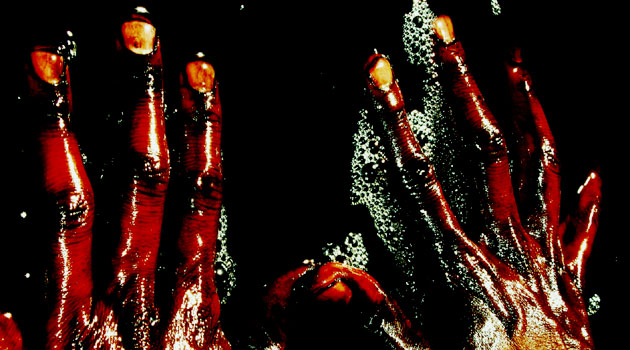I don’t believe in writer’s block. If I can’t write, I go out and live. Then, if I’m a writer, I’ll find something to write.” –Peter Arpesella
Confession: as someone who writes memoir, I often get sick of myself. For several years I’ve been working on the same project—growing up in poverty with a closeted homosexual single mother—first as a graduate student in an MFA program and now as a writing professor at a small liberal arts college, where tenure in part depends on publication. I’m on the third and, hopefully, final draft.
This summer, I spent my break rearranging, rewriting, and recreating. By the end I was saturated once again with the sticky, cloying oil of my past. It coated everything. Every time I licked my lips, I tasted it. Every time I sat with my laptop to write, I smelled it, scorched and dark. My skin was thick with it, my vision blurred; sounds were distorted. Immersed in that world for months at a time, my sense of who I am now—writer, wife, teacher—begins to waver as though my adult self were only a mirage shimmering in the foreground of my past. That’s when the words get stopped up and I don’t want to write. Often, I take a vacation from myself, from writing.
I also take heart. I’m in good company. Dorothy Parker, a poet, short story writer and screenwriter, once sent a telegram to her editor Pascal Covinci bemoaning a late manuscript. She wrote, “Don’t know why it is so terribly difficult or I so terribly incompetent.”
I recently read an article in The New Yorker that pointed toward mental illness as the reason why creative people sometimes get blocked up. One researcher, though, says malfunctioning brain mechanics can block many writers. “Block shares some characteristics with disorders arising from frontal-lobe damage …”
I hate to think that I suffer from some sort of mental instability, but I’ve read enough about the processes of writers to recognize that I may, in fact, be unbalanced. Even still, I’m not sure which is worse: the idea that I need a break from writing because I’m mentally unstable or because of brain damage. After all, I live in the Midwest where these sorts of causes are looked at as suspicious at best and as a character flaw at worst.
Writers aren’t supposed to admit that they get tired of writing. It would be like a Christian minister saying he gets sick of working for God. We’re supposed to say we must write. There’s nothing else for us but to write. We would somehow be incomplete if we didn’t scribble at least a sentence or two every day. That we know we would be. Incomplete. If we didn’t write.
Sometimes the words are just too damned much. Sometimes, we are just too damned much. Sometimes the stories, the images, are too overwhelming. Of course, there are the genius writers among us, the ones from whom the words pour forth as if from a waterfall. Not that the writing isn’t difficult work for them too, but they seem to live in some sort of perpetual spiritual state of writing that I can barely find on my best day. For me, the writing is work. Immersion into my created worlds is often exhausting. For days, even weeks, I stay out of my head and take a break to recalibrate and reorient myself in the present reality, anchored in the world with my current self. It is then—after I’ve grounded myself in the present with people who exist in my here and now, three-dimensionally and off the page—that I am able to return to the words, because it’s true when writers say they must write.
 Jennifer Ochstein earned her MFA in Creative Writing from Ashland University in 2012. She’s published book reviews with Brevity and essays with Connotation Press, The Lindenwood Review, Evening Street Review, and Hippocampus Magazine. She’s currently at work on a memoir about her mother and teaches at Bethel College.
Jennifer Ochstein earned her MFA in Creative Writing from Ashland University in 2012. She’s published book reviews with Brevity and essays with Connotation Press, The Lindenwood Review, Evening Street Review, and Hippocampus Magazine. She’s currently at work on a memoir about her mother and teaches at Bethel College.


0 comments on “A Writer’s Confession”